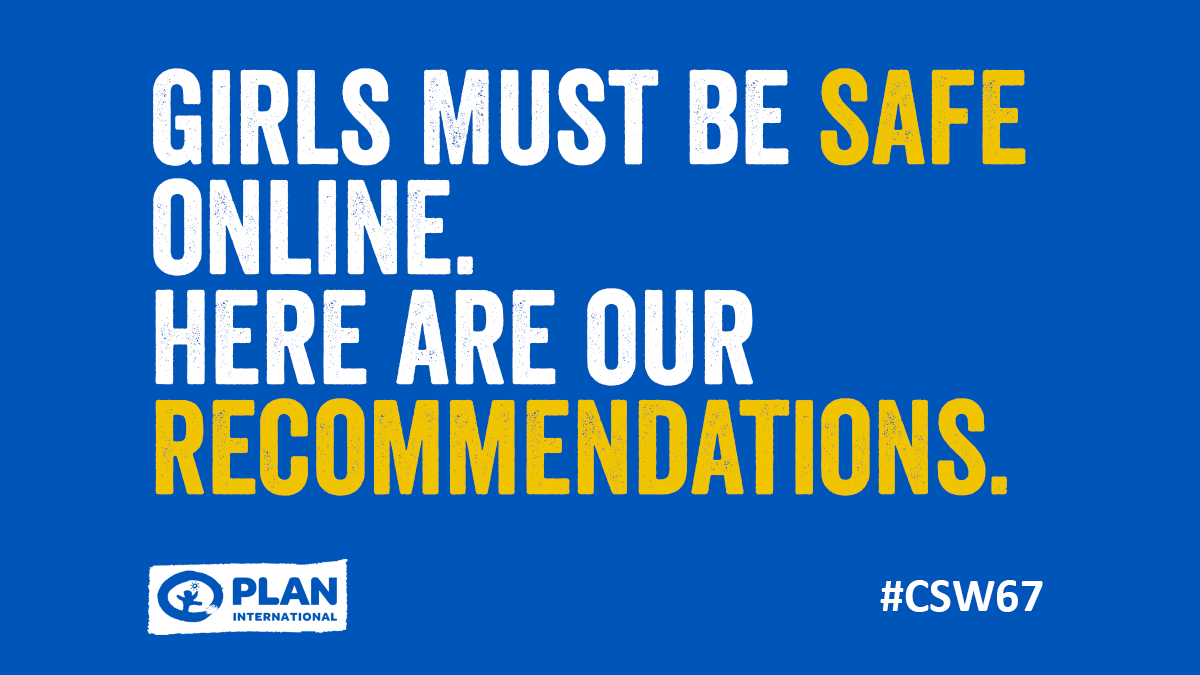Adolescent girls in the digital era: A call to action
Policy and advocacy brief for the 67th session of the Commission on the Status of Women (CSW67)
This policy brief calls on Member States at CSW67 to address the unique challenges faced by girls in all action and decision-making related to the digital environment.

Since the adoption of the Beijing Declaration and its Platform for Action, the digital revolution has drastically transformed our societies and economies.
COVID-19 has further accelerated the use of digital technologies at an unprecedented pace in almost every aspect of our lives from health to education, from activism to employment – this has presented new and positive opportunities for users worldwide.
The internet can be a powerful tool for advancing gender equality and the human rights of all girls, enabling and empowering them to fulfil their potential and pursue their ambitions as leaders and active citizens.
Girls face discrimination online
Nevertheless, in almost every aspect of their lives, girls face multiple and intersecting forms of discrimination due to entrenched social and gender norms as well as discriminatory policies. These unequal power relations and structural inequalities are then deeply ingrained in the design, availability and use of technology.
For adolescent girls, gender norms, stereotypes, and inequalities begin shaping and differentiating their access to, experience of, and competencies in digital technologies and environments in early years, in the home, in the community and at school. Girls and adolescent girls, particularly in low-income contexts, are less likely to access the internet and digital devices and get less practical exposure to build digital literacy and skills, and are at an increased risk of technology-facilitated gender-based violence, harassment and abuse.
Safe, equal access to digital
For girls, from early childhood, through adolescence and into adulthood, making important decisions— planning their futures, education and careers, civic engagement and sexual and reproductive health — is reliant on safe and meaningful access to reliable, factual information.
The risk that patterns of inequalities are instead repeated and amplified is nevertheless substantial. At CSW67, Member States must commit to addressing the unique challenges faced by girls, and adolescent girls in particular, in all action and decision-making related to the digital environment.
If Member States are to achieve the blueprint for gender equality set out in the Beijing Declaration and its Platform for Action, the immense potential of the global digital transformation must be harnessed in an inclusive, participatory, gender transformative and age responsive manner in order to promote and advance the empowerment and human rights of all girls and adolescent girls, in all their diversity.
Recommendations for Member States at CSW67
- Bridge the gender digital divide, recognising in particular the specific challenges faced by girls and adolescent girls
- Prevent, eliminate and respond to all forms of technology-facilitated gender-based violence, discrimination and child sexual exploitation and abuse
- Enact legislation and policies to address false information, misinformation and disinformation online
- Ensure the meaningful and safe participation of girls and adolescent girls, and particularly those most impacted, in all policies, programmes and decision-making processes concerning the digital environment
- Enact and enforce laws requiring business enterprises in the technology sector to carry out age- and gender-responsive human rights due diligence.
Download full policy brief
CSW67 Policy brief
438 kb
Categories: Education, Protection from violence, Youth empowerment


